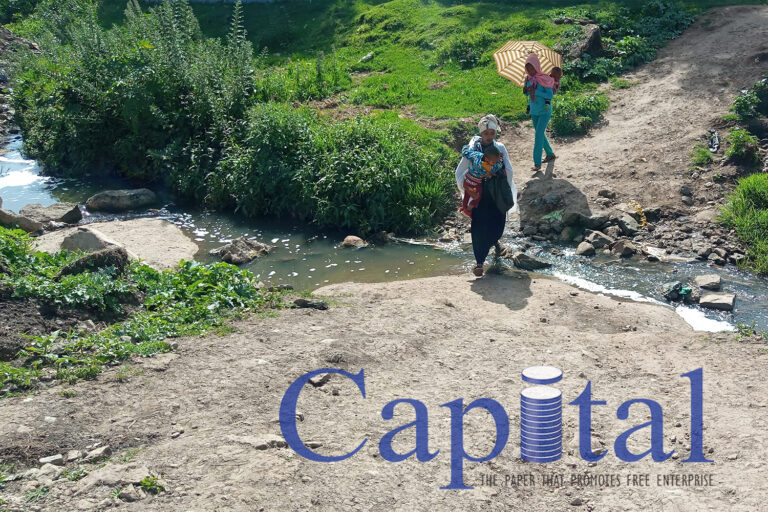COVID-19 intensifies the urgency to expand sustainable energy solutions worldwide
Despite accelerated progress over the past decade, the world will fall short of ensuring universal access to affordable, reliable, sustainable, and modern energy by 2030 unless efforts are scaled up significantly, reveals the new Tracking SDG 7: The Energy Progress Report released by the International Energy Agency (IEA), the International Renewable Energy Agency (IRENA), the United Nations Statistics Division (UNSD), the World Bank, and the World Health Organization (WHO).
According to the report, significant progress had been made on various aspects of the Sustainable Development Goal (SDG) 7 prior to the start of the COVID-19 crisis. This includes a notable reduction in the number of people worldwide lacking access to electricity, strong uptake of renewable energy for electricity generation, and improvements in energy efficiency. Despite these advances, global efforts remain insufficient to reach the key targets of SDG 7 by 2030.
The number of people without access to electricity declined from 1.2 billion in 2010 to 789 million in 2018, however, under policies that were either in place or planned before the start of the COVID-19 crisis, an estimated 620 million people would still lack access in 2030, 85 percent of them in Sub-Saharan Africa. SDG 7 calls for universal energy access by 2030.
Other important elements of the goal also continue to be off track. Almost 3 billion people remained without access to clean cooking in 2017, mainly in Asia and Sub-Saharan Africa. Largely stagnant progress since 2010 leads to millions of deaths each year from breathing cooking smoke. The share of renewable energy in the global energy mix is only inching up gradually, despite the rapid growth of wind and solar power in electricity generation. An acceleration of renewables across all sectors is required to move closer to reaching the SDG 7 target, with advances in heating and transport currently lagging far behind their potential. Following strong progress on global energy efficiency between 2015 and 2016, the pace has slackened. The rate of improvement needs to speed up dramatically, from 1.7 percent in 2017 to at least 3 percent in coming years.
South Africa’s Mama Money Expands Global Reach with Western Union
Western Union , a leader in cross-border, cross-currency money movement and payments, and Mama Money, a rapidly growing international money transfer company, have joined forces to enable Mama Money customers to send money to their loved ones around the world via Western Union’s Global Network.
This collaboration will gear Mama Money’s more than 500,000 customers in South Africa to send money from their smartphones for payout into billions of bank accounts in over 100 countries around the world or in cash at Western Union Agent locations across more than 200 countries and territories.
Customers can pay for transactions within the Mama Money app via direct transfers from their bank accounts or through a vast cash-in network at all major retailers in South Africa, providing a convenient and user-friendly experience.
Western Union’s open platform strategy powers other brands to move money and enable international cross-border money movement in minutes1 by leveraging its core cross-border assets – including global settlement capabilities, compliance, operations, network, and technology systems.
“Western Union’s robust and reliable network coupled with Mama Money’s easy-to-use and reliable digital service, is a highly strategic partnership with massive potential for tapping into a broader remittance market especially for the unbanked population,” said Nicolas Vonthron, Chief Operating Officer, Mama Money.
“Western Union is excited to work with Mama Money to connect customers with their loved ones around the world. Innovative collaborations such as these will continue to shape global business models while enhancing customer experience and retaining their loyalty,” said Mohamed Touhami El Ouazzani, Regional Vice President, Africa, Western Union.
DHL Express cements commitment to growing African e-commerce with strategic investment in Link Commerce
DHL Express announced its minority stake acquisition in Link Commerce, the UK-based e-commerce firm that helped the logistics company develop its hugely successful DHL Africa eShop platform.
Hennie Heymans, CEO of DHL Express sub-Saharan Africa, says that the acquisition demonstrates the company’s commitment to growing e-commerce on the continent. “Acquiring a stake in Link Commerce – the company behind the MallforAfrica.com platform – shows our tremendous support of e-commerce in Africa. It also positions us to realize our ambitions of growing the eShop offering globally, and work on the scalability of the platform when the opportunity arises.”
“DHL’s investment in Link Commerce is a perfect fit. With the DHL investment we are now able to grow faster by leveraging the amazing shipping network DHL has built globally. This will help us expand our white-label turnkey B2B eCommerce platform and provide online shoppers with the ability to shop more and get more at great shipping rates fast,” said Chris Folayan Founder and CEO of Link Commerce and Mall for Africa.
Just over one year on from its initial launch, the DHL Africa eShop continues to see massive growth in sub-Saharan Africa. Heymans notes that the DHL Africa eShop has consistently outperformed expectations since its launch. “The platform was developed in partnership with Link Commerce and initially launched in 11 African countries in April 2019. It was an immediate success, gaining around 5,000 subscribers within the first six weeks. Today, DHL Africa eShop is live in 34 countries across Sub-Saharan Africa with tens of thousands of users across the continent.”



